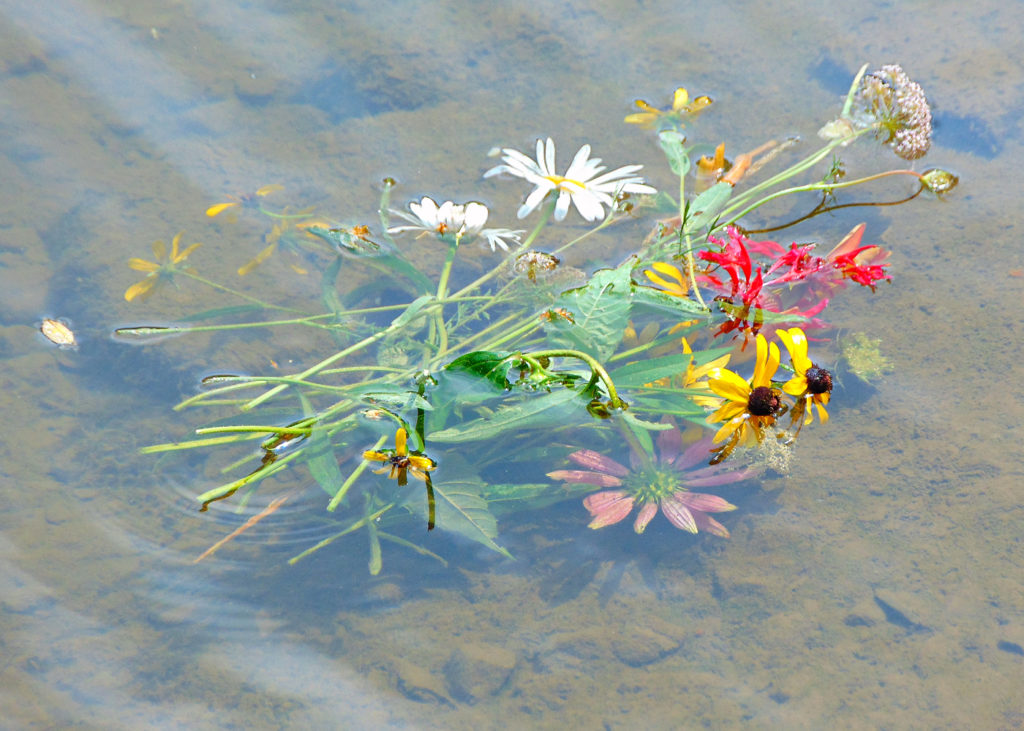
The first time I heard the phrase “Love means never having to say you’re sorry,” I wrinkled up my nose. It didn’t make any sense to me at all. I think it came from a movie, a mushy romance of some kind. I didn’t see it. I didn’t like its theme song or something. But I kept trying to figure out what the phrase meant. To me, it sounded like they were saying you didn’t have to apologize to someone who loved you because they would forgive you anyway.
Comedian Alan Alda, on the other hand, when he was popular for playing the character Hawkeye on M.A.S.H. said he knew the secret of a happy marriage. He and his wife had been married for 25 years at the time. “When you come home at night,” he said, “the first thing you do is put your arms around her, gently kiss her neck, and whisper in her ear, “I’m sorry.” He says there’s bound to be something she thought you did wrong.
When you think about it, it’s kind of arrogant to think you have nothing to apologize for, or nothing to regret. That’s a lack either of self-awareness or of propriety. And it takes the other’s love for granted, too, if you don’t think they deserve an “I’m sorry.”
When you pay attention, you can catch yourself doing things big and small that you wish you might have done differently. You said something, or didn’t say something. You did something, or didn’t do something. Sometimes you catch yourself entertaining a repulsive thought.
When you notice yourself tripping up, however large or small your stumble might be, and you say, “I’m sorry,” a wave of self-acceptance washes over you. You acknowledge the part of yourself that erred and let yourself feel the embarrassment, annoyance, frustration, shame, anger, even pain that it brought you. You learn on a feeling-level the value of making better choices, of going with your higher instincts. You learn. And that’s a beautiful thing. Some say it’s our whole reason for being here.
Saying “I’m sorry” keeps us humble, too. It reminds us of our human limitations and imperfections, as much as we all would like to pretend that we have none. (Or at least fewer than the average bear.)
Sometimes you whisper it to yourself, to the core of you, however you imagine that to be: “I’m sorry.” Sometimes you say it out loud to someone else, out of courtesy or from a desire to mend a wound you caused, intentionally or not. Either way, there’s something healing about it. It puts you back in touch with reality in a more conscious way.
And here’s something you’ll discover as you work with this simple phrase, “I’m sorry.” Deep down, you’re sorry for the whole human race, every single member of it going back before the beginning of time. Especially, perhaps, for your ancestors. You offer apologizes on behalf of every one of them. Because they would want you to. We, as human beings, are sorry for the times and the ways in which we have failed, that we have let ourselves and each other down.
I guess you address that one to the universe, to all sentient beings everywhere. It lets them know we are aware and willing to take responsibility. We are evolving. Bit by bit.
But mostly “I’m sorry” is a personal thing. It’s a balancer, a reconciler, It corrects your course, anchors you to your center and reminds you who, at core, you are and want always to express. It’s a kind of sign you give to yourself that you’re on the right path.
It’s one of the four simple phrases that change everything. You can say them in any order that you like. Or play with them in pairs or one at a time. Experiment with them at your ease, and see what happens. I’m sorry. Please forgive me. Thank you. I love you.
Wow.
Next week, we’ll look at what it means to forgive and to ask forgiveness. But let that go for now. For now, see when “I’m sorry” slips into your mind . . . And may you feel its many blessings.
Warmly,
Susan